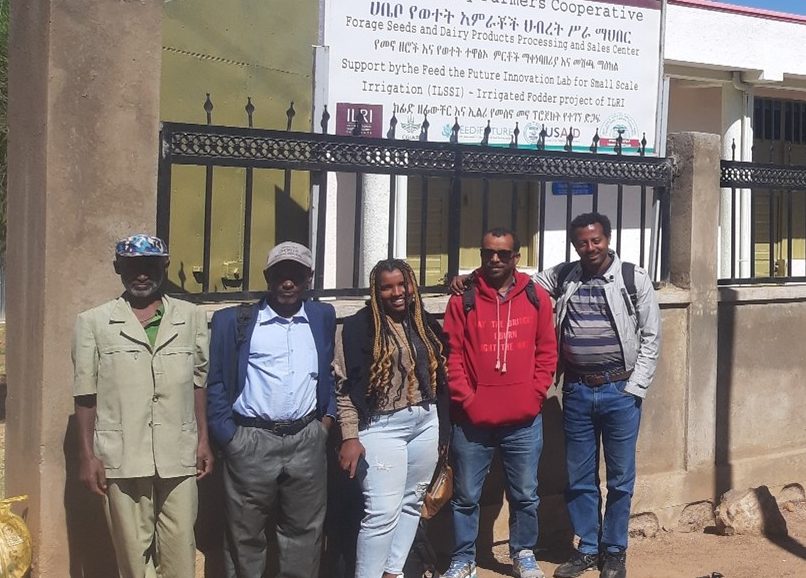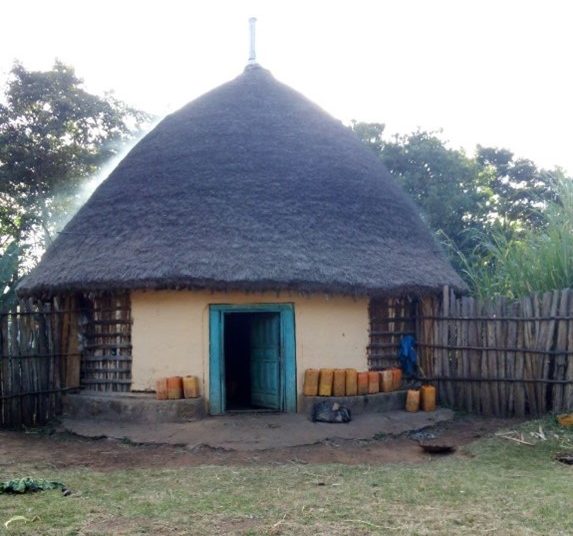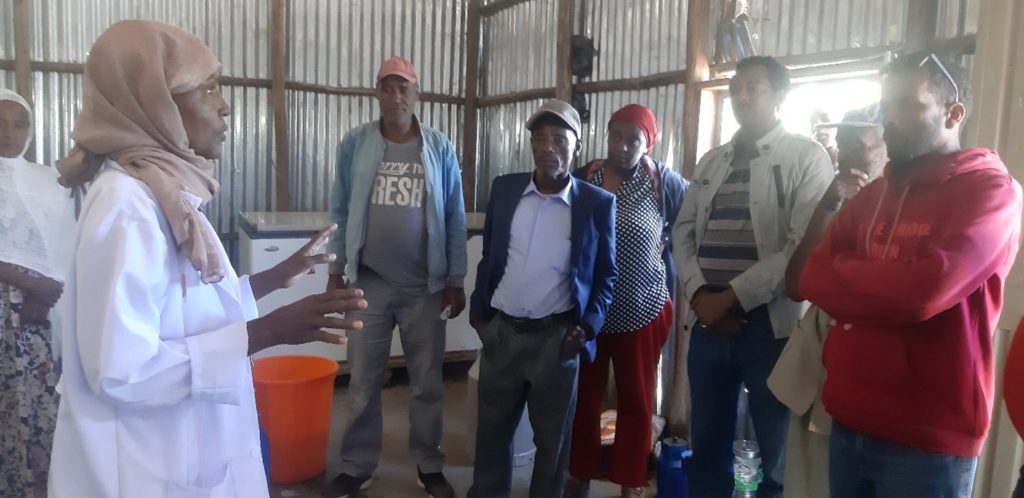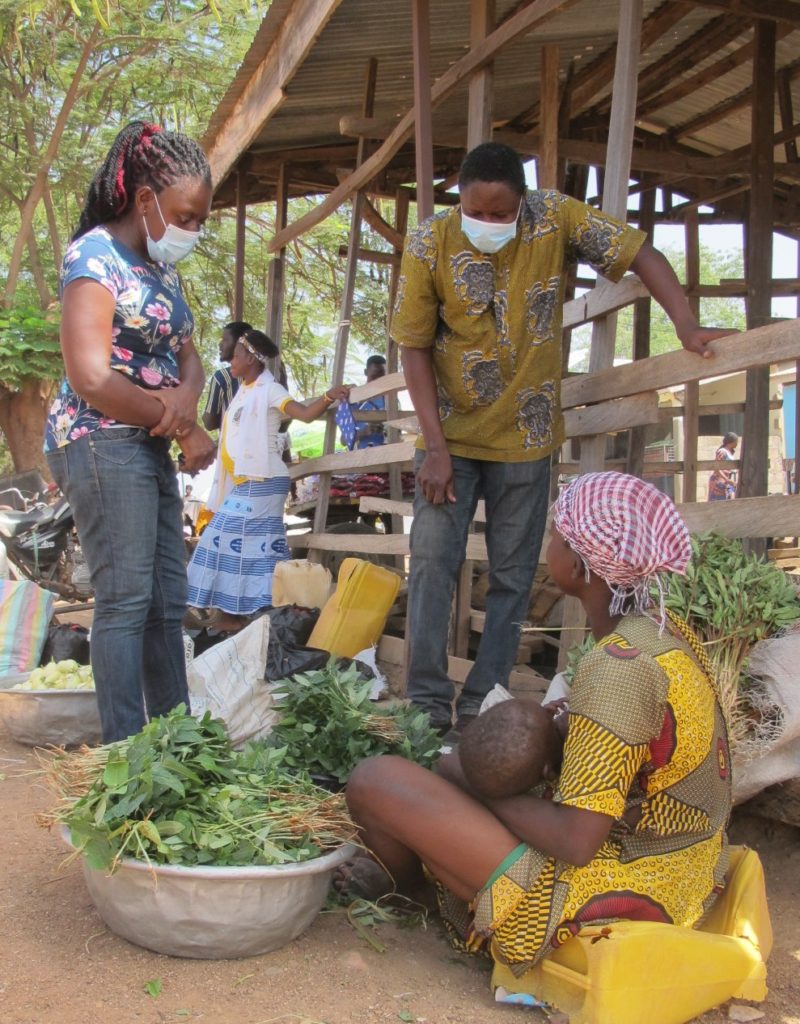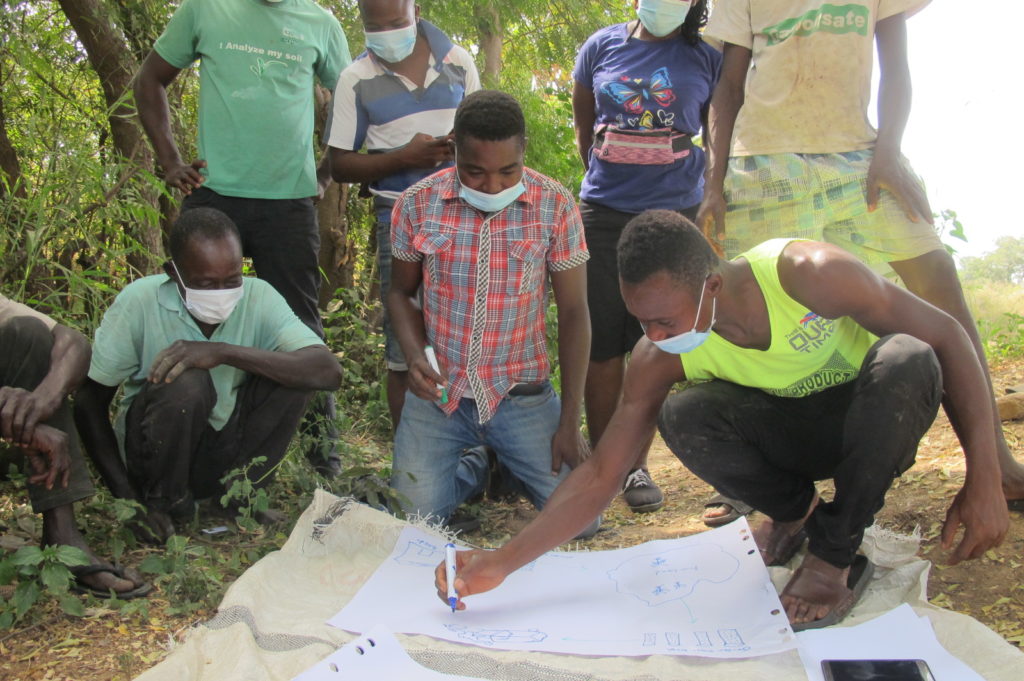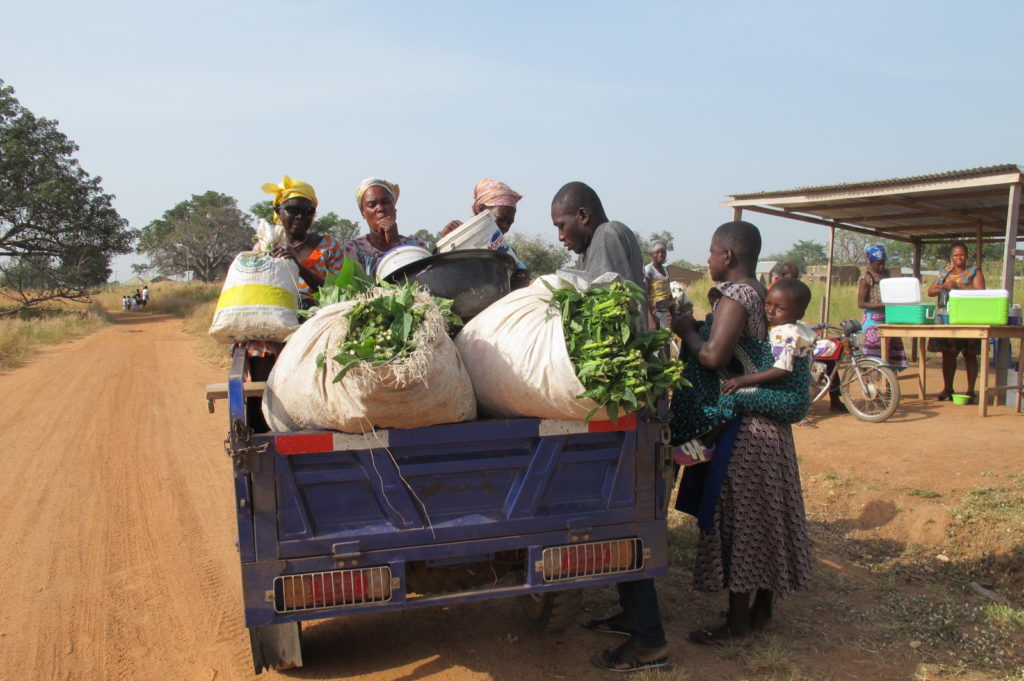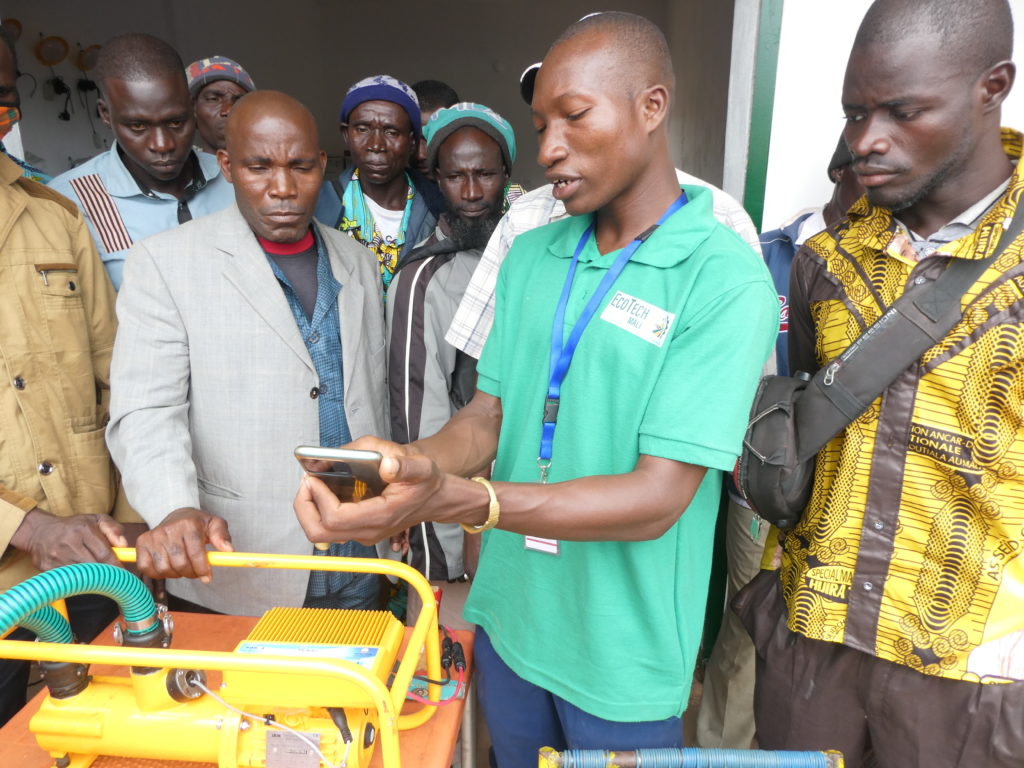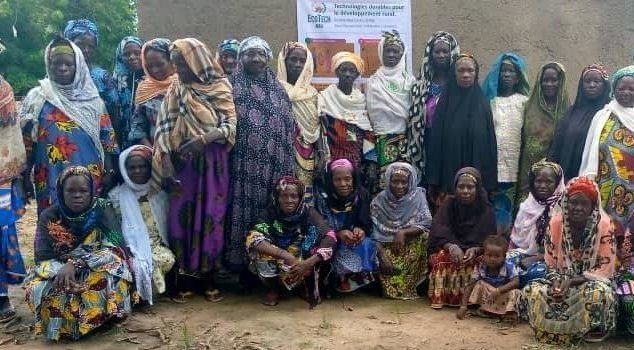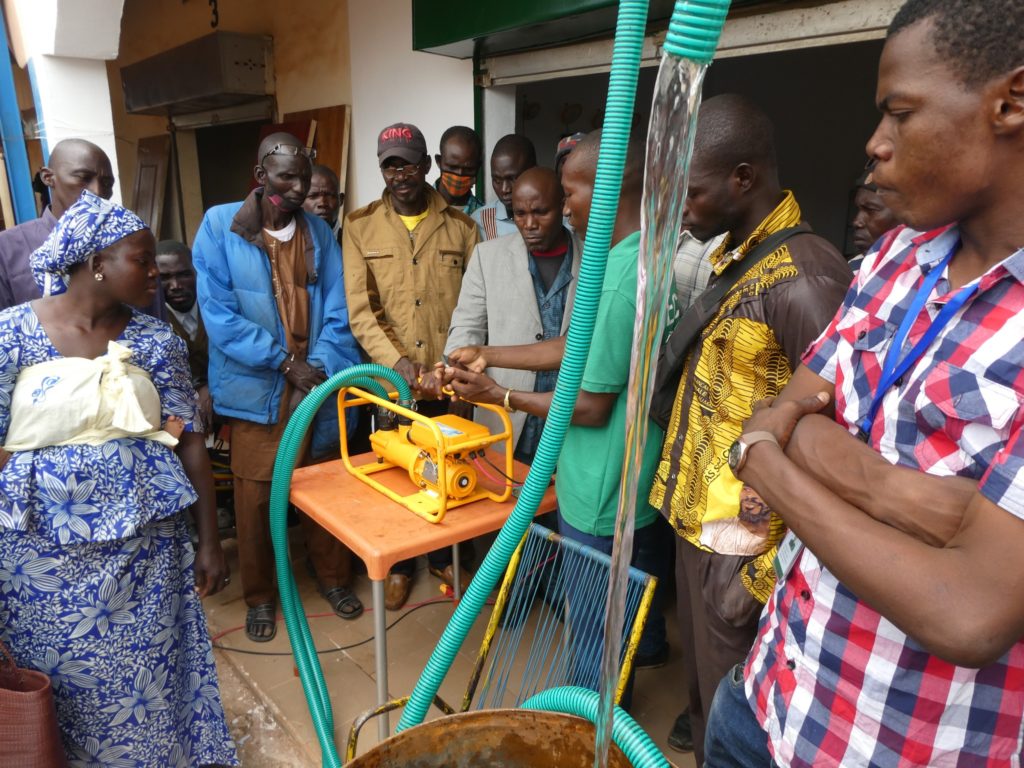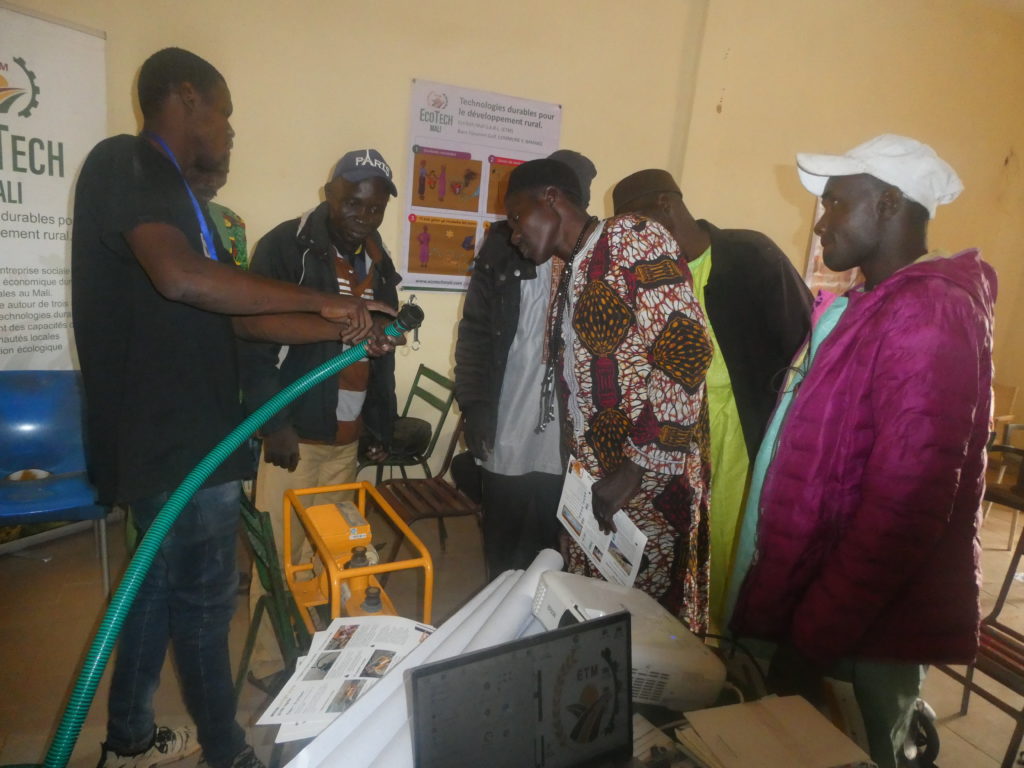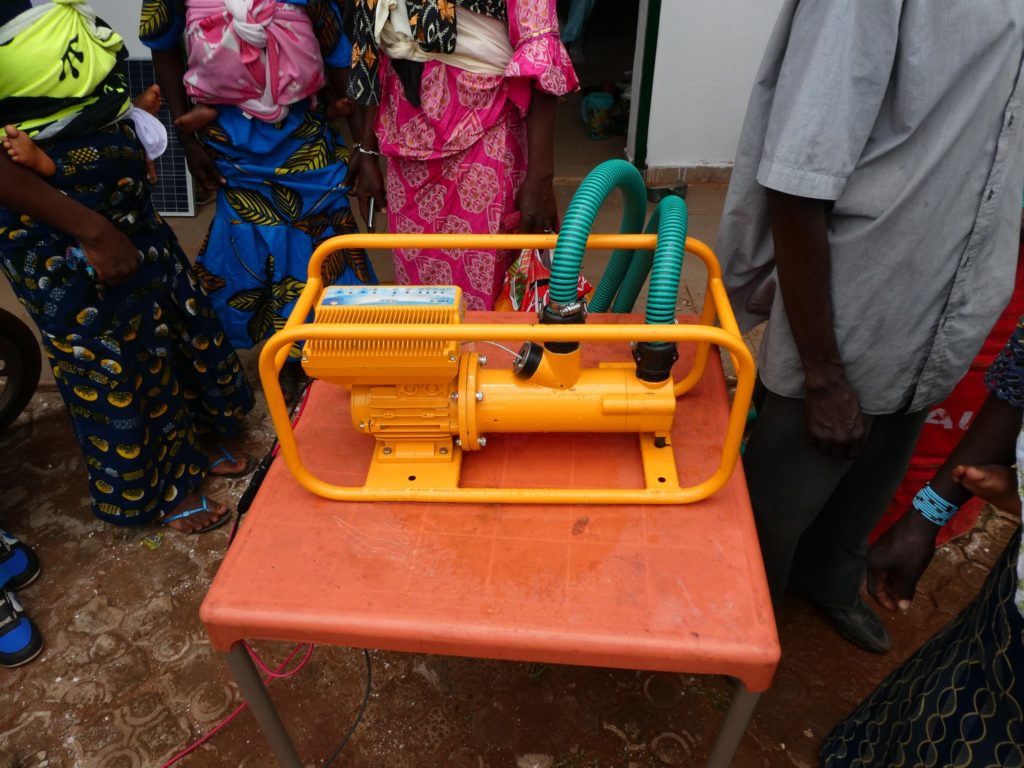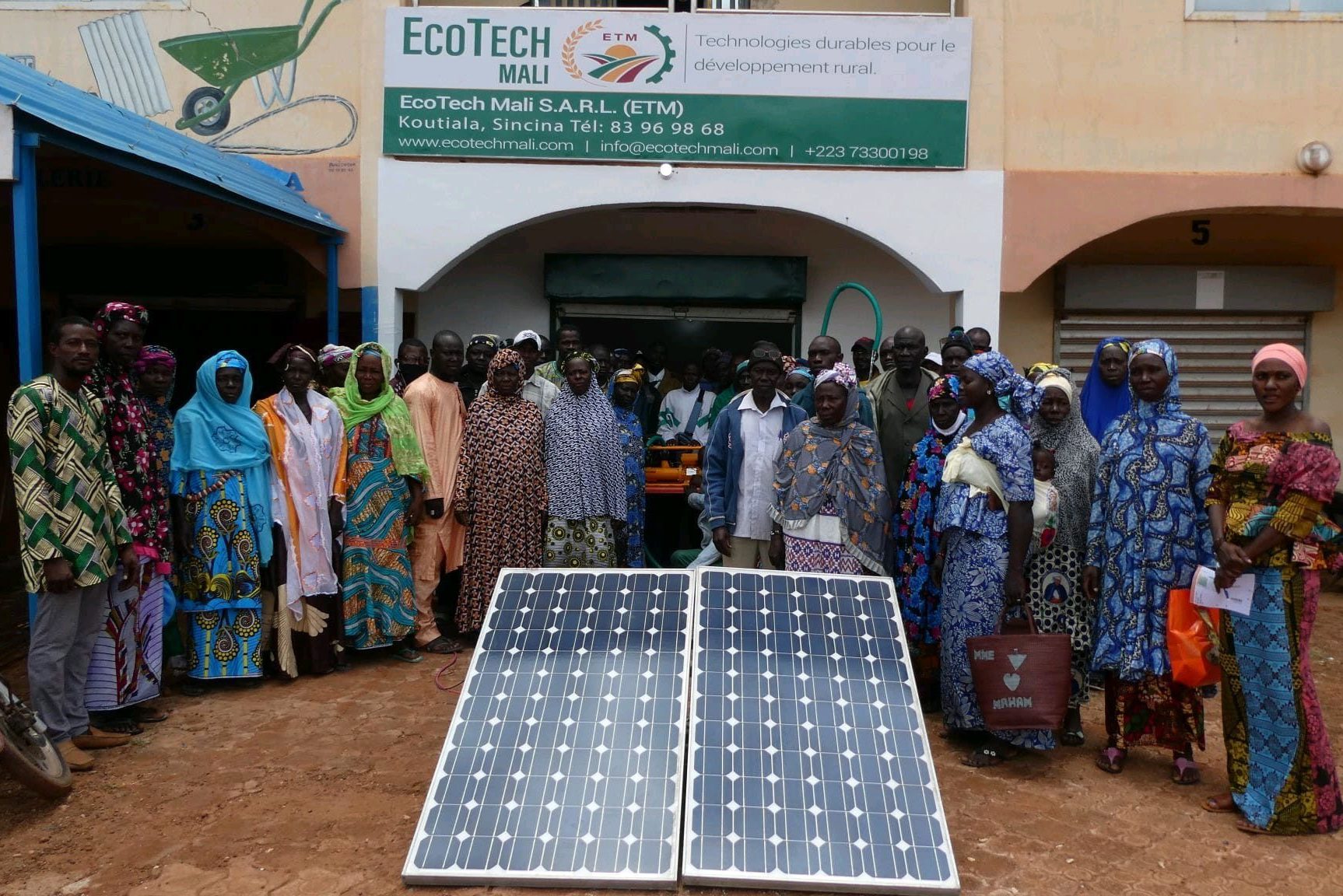by Muluken Elias Adamseged and Dagmawi Melaku, International Water Management Institute (IWMI)
Agriculture is strategically a key sector for Ethiopia, engaging more than two-thirds of the labour force and is predominantly dominated by smallholder farmers and rainfed systems. Given the high climate uncertainty, enriching irrigation access to farmers is at the core development agenda of governmental and non-governmental organizations. While there is limited adoption of irrigation technologies among smallholders, most of the small or household level irrigators are using water pumps that run, mostly, on fossil fuels or electricity. In recent years, the high price increase and unreliable supply of fossil fuels were additional factors encouraging the search for an alternative solution.
These conditions were a part of the background for The International Water Management Institute (IWMI) to co-design and develop innovations with stakeholders. Thus, with funding from the Feed for The Future Innovation Lab for Small Scale Irrigation (ILLSI). IWMI introduced the solar pump for irrigation purposes for smallholder farmers. To pave the way for backward and forward linkages, the solar-powered innovation is bundled with other innovations including client credit assessment, Pay-As-You go, muti-stakeholder collaboration platforms, and tailored business models. In Ethiopia, ILSSI has been working with stakeholders from the ministries, research centres, universities, and private sectors to enhance learning and decision making on Farmer Led Irrigation development (FLID). The MSD series, through A multi-stakeholder dialogue in 2020; A multi-stakeholder dialogue 2021, has helped to identify the challenges, opportunities, solutions and approaches to scale innovations that support FLID.
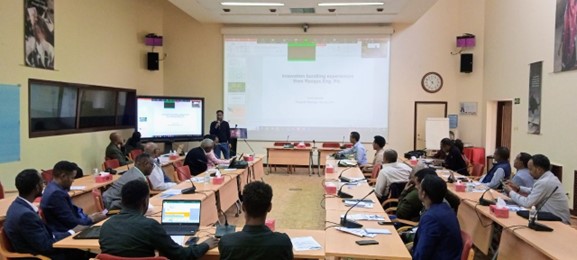
Throughout this process, private sector actors have played a key role. The results of the 6th MSD in 2023 showed the importance of irrigation innovation bundling, and so the demand for it has been created among the intervention areas. One of the private sector agents reported that he is regularly receiving requests from farmers in the intervention areas. A farmer recently asked the agent “Gashe (sir) can you please bring me the same product (solar pump) like my neighbour Gedamu Moges?” The frequent requests show the good perception and value created among the community, yet also indicate the low capacity of the private sector to reach and fulfil such local demands.
What we have observed from the 6th MSD and in the overall project results is a glimpse of hope in the role of the private sectors for agriculture development in Ethiopia. However, the number of companies in the private sector, specifically engaged in irrigated agriculture in any form, be it technology and input provision, agronomic advisory support schemes and related services, are few in numbers. Given the proportion of small holder farmers in Ethiopia (more than 90%), the private sector’s engagement needs to be incentivized and developed.
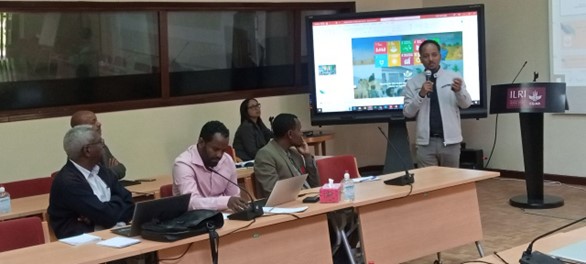
Thus, exploring possibilities on how to keep the momentum of the private sector need to be on the agenda of the stakeholders. Five key aspects on how to engage and develop the private sector for further enhancement of the sector in FLID are as follows:
- Supporting the private sectors and their niche initiatives: in the early stages of piloting and implementing the innovations, the private sector has been supported by financial, technical, and non-technical areas. Given the novelty of the innovation, providing some shelter was one of the reasons for the successful implementation . These have enabled them to strengthen their own capacities, develop inclusive business models and minimize risks, and promote their products and services. If not for the support, the idea could have died at the niche level.
- Strengthening the multi-stakeholder dialogue: the Agricultural Water Management Task Force (AWM-TF) has co-organised the MSD for the last few years. The platform has provided opportunities for the private sector to understand who the key stakeholders are and how to cooperate with them, and to discuss the key challenges the sector faced. Thus, sustaining the MSD and creating related platforms could benefit the sector.
- Improve the institutional setting: the private sector and their initiatives are encountered with institutional, financial, and technical challenges. The delayed grant of Letter of Credit for importing, the lengthy importing process and complex customs services, have been key challenges for implementation. Even after the tax exemption of the solar pumps was rolled out, the implementation and lack of clear guidelines have hampered the supply of the technology for the farmers.
- Facilitate access to finance: the private sector has not been able to mobilize and facilitate access to loans for the farmers. One of the reasons for this is due to lack of rules and regulation to lend money for solar pumps. Microfinance institutions are reluctant to lend money for small holder farmers.
- Strengthening public private partnership (PPP): the PPP strategy for irrigation sub sector that is currently under development by AWM-TF and partners will be crucial to structure and facilitate partnerships for FLID. During the 6th MSD, stakeholders expressed interest to enrich the strategy with further inputs and dialogues with private actors in irrigated value chains.

